Abstract
The induction of chilling tolerance by abscisic acid (ABA) in maize (Zea mays L. cv Black Mexican Sweet) suspension cultured cells was examined. Cell viability during exposure to chilling was estimated by triphenyl tetrazolium chloride reduction immediately after chilling and a filter paper growth assay. Both methods yielded comparable results. Chilling tolerance was induced by transferring 5-day-old cultures (late log phase) to a fresh medium containing ABA (10 to 100 micromolar). The greatest chilling tolerance was achieved with ABA at 100 micromolar. Growth of cells was inhibited at this concentration. After a 7-day exposure to 4°C in the dark, the survival of ABA-treated cells (100 micromolar ABA, 28°C for 24 h in the dark) was sevenfold greater than untreated cells. Effective induction of chilling tolerance was first observed when cells were held at 28°C for 6 hours after adding ABA. No tolerance was induced if the culture was chilled at the inception of ABA treatment. Induction of chilling tolerance was inhibited by cycloheximide. These results indicate that ABA is capable of inducing chilling tolerance when ABA-treated cells are incubated at a warm temperature before exposure to chilling, and this induction requires de novo synthesis of proteins.
Full text
PDF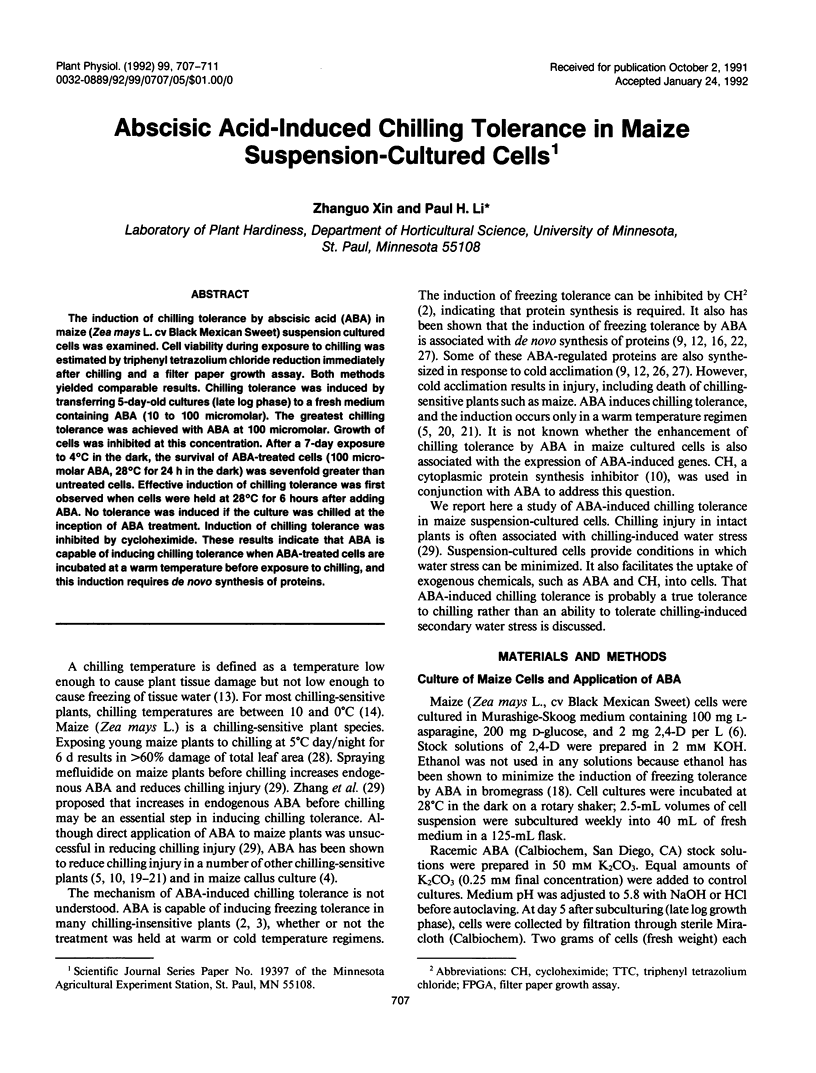
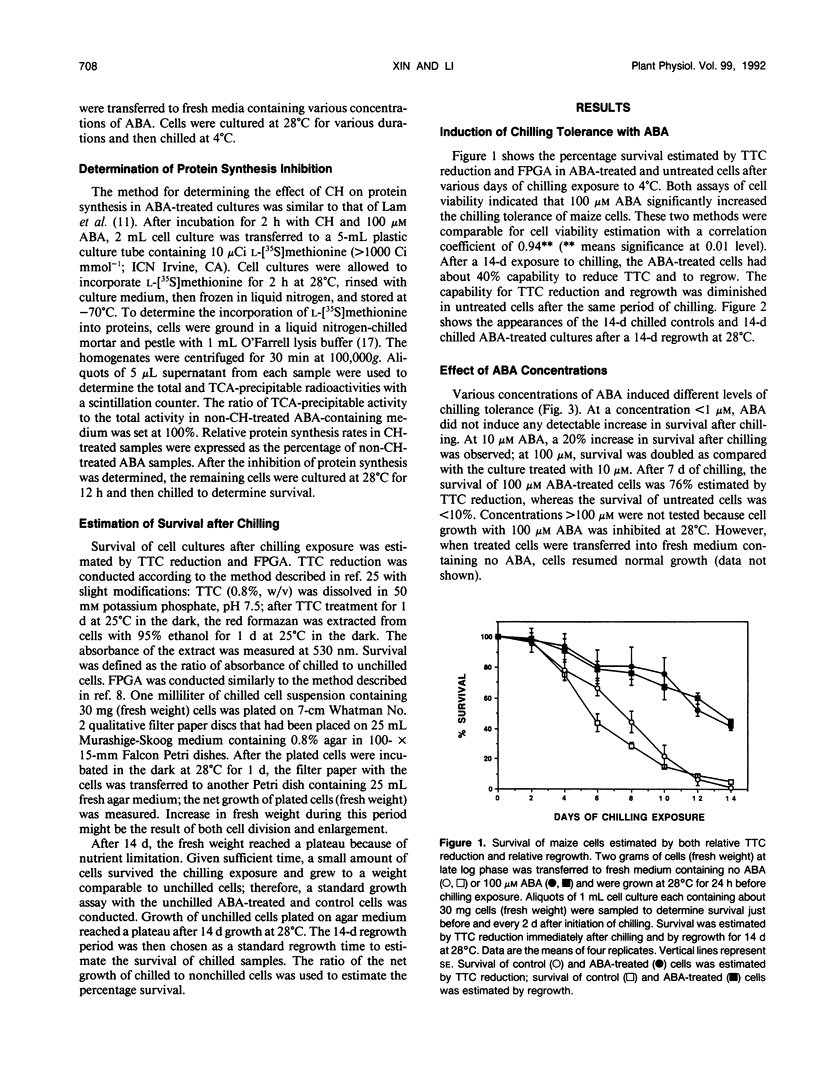
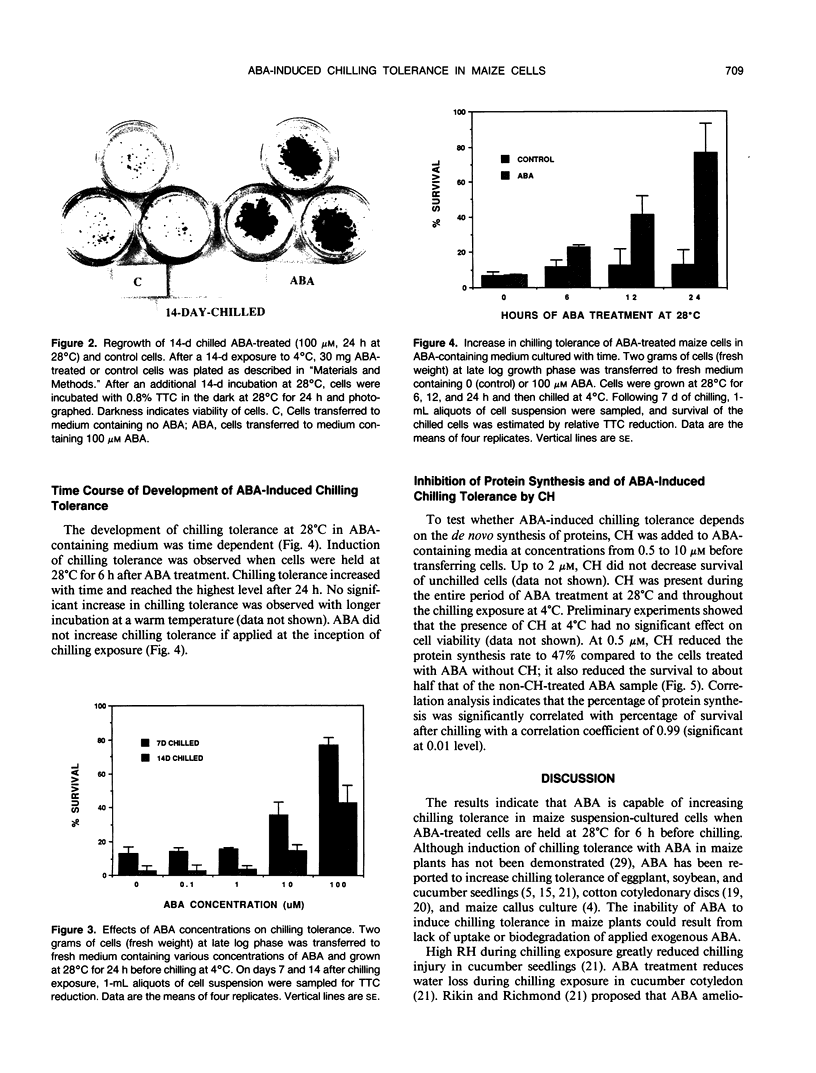
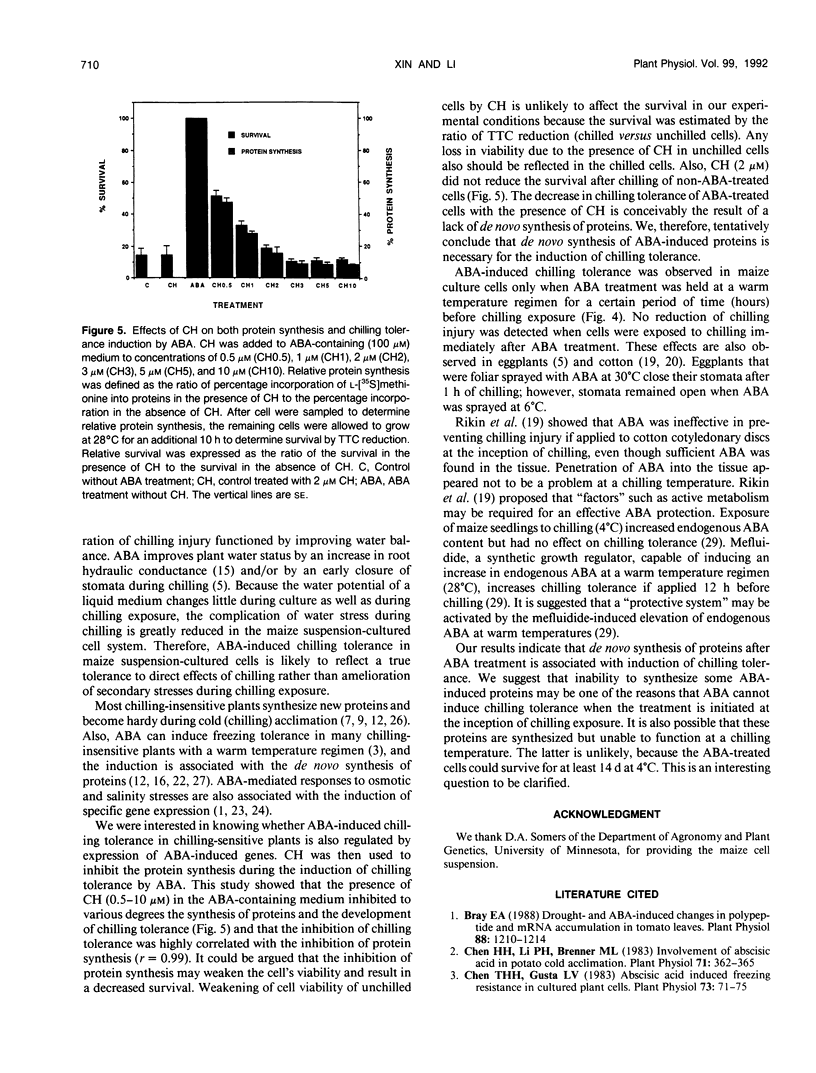
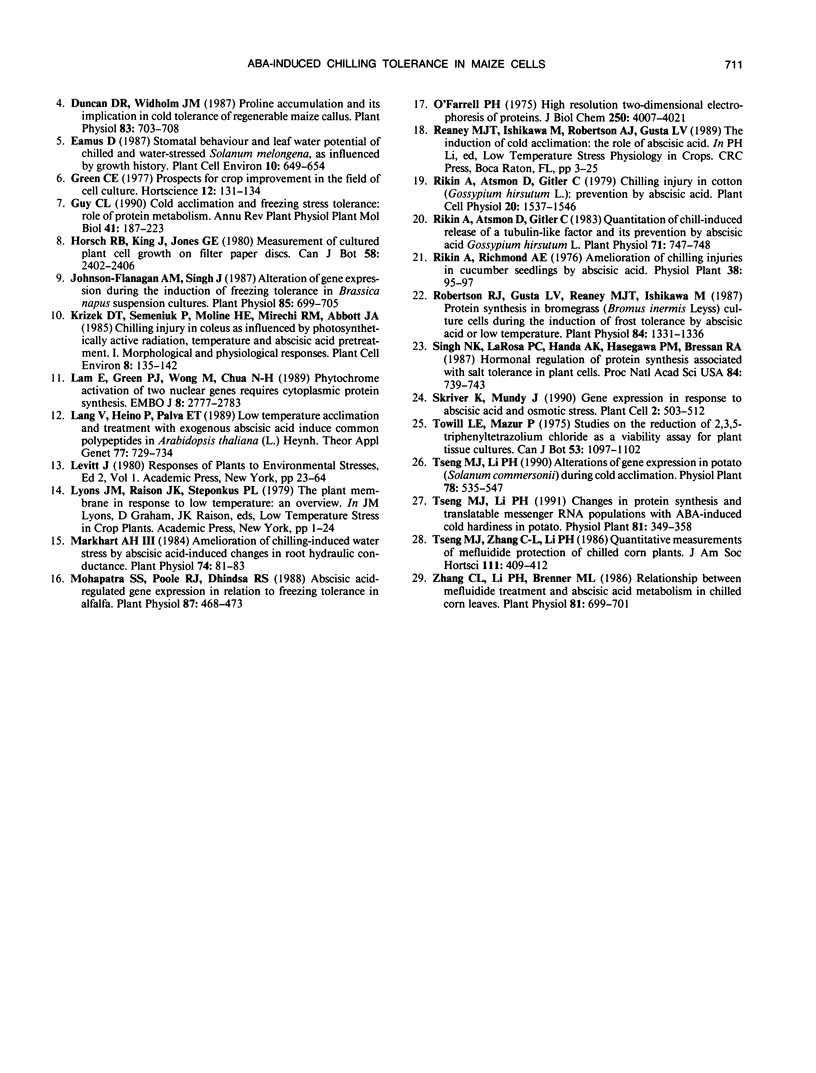
Images in this article
Selected References
These references are in PubMed. This may not be the complete list of references from this article.
- Bray E. A. Drought- and ABA-Induced Changes in Polypeptide and mRNA Accumulation in Tomato Leaves. Plant Physiol. 1988 Dec;88(4):1210–1214. doi: 10.1104/pp.88.4.1210. [DOI] [PMC free article] [PubMed] [Google Scholar]
- Chen H. H., Li P. H., Brenner M. L. Involvement of abscisic Acid in potato cold acclimation. Plant Physiol. 1983 Feb;71(2):362–365. doi: 10.1104/pp.71.2.362. [DOI] [PMC free article] [PubMed] [Google Scholar]
- Chen T. H., Gusta L. V. Abscisic Acid-induced freezing resistance in cultured plant cells. Plant Physiol. 1983 Sep;73(1):71–75. doi: 10.1104/pp.73.1.71. [DOI] [PMC free article] [PubMed] [Google Scholar]
- Duncan D. R., Widholm J. M. Proline accumulation and its implication in cold tolerance of regenerable maize callus. Plant Physiol. 1987 Mar;83(3):703–708. doi: 10.1104/pp.83.3.703. [DOI] [PMC free article] [PubMed] [Google Scholar]
- Johnson-Flanagan A. M., Singh J. Alteration of Gene Expression during the Induction of Freezing Tolerance in Brassica napus Suspension Cultures. Plant Physiol. 1987 Nov;85(3):699–705. doi: 10.1104/pp.85.3.699. [DOI] [PMC free article] [PubMed] [Google Scholar]
- Lam E., Green P. J., Wong M., Chua N. H. Phytochrome activation of two nuclear genes requires cytoplasmic protein synthesis. EMBO J. 1989 Oct;8(10):2777–2783. doi: 10.1002/j.1460-2075.1989.tb08423.x. [DOI] [PMC free article] [PubMed] [Google Scholar]
- Markhart A. H. Amelioration of chilling-induced water stress by abscisic Acid-induced changes in root hydraulic conductance. Plant Physiol. 1984 Jan;74(1):81–83. doi: 10.1104/pp.74.1.81. [DOI] [PMC free article] [PubMed] [Google Scholar]
- Mohapatra S. S., Poole R. J., Dhindsa R. S. Abscisic Acid-regulated gene expression in relation to freezing tolerance in alfalfa. Plant Physiol. 1988 Jun;87(2):468–473. doi: 10.1104/pp.87.2.468. [DOI] [PMC free article] [PubMed] [Google Scholar]
- O'Farrell P. H. High resolution two-dimensional electrophoresis of proteins. J Biol Chem. 1975 May 25;250(10):4007–4021. [PMC free article] [PubMed] [Google Scholar]
- Rikin A., Atsmon D., Gitler C. Quantitation of Chill-Induced Release of a Tubulin-Like Factor and Its Prevention by Abscisic Acid in Gossypium hirsutum L. Plant Physiol. 1983 Apr;71(4):747–748. doi: 10.1104/pp.71.4.747. [DOI] [PMC free article] [PubMed] [Google Scholar]
- Robertson A. J., Gusta L. V., Reaney M. J., Ishikawa M. Protein Synthesis in Bromegrass (Bromus inermis Leyss) Cultured Cells during the Induction of Frost Tolerance by Abscisic Acid or Low Temperature. Plant Physiol. 1987 Aug;84(4):1331–1336. doi: 10.1104/pp.84.4.1331. [DOI] [PMC free article] [PubMed] [Google Scholar]
- Singh N. K., Larosa P. C., Handa A. K., Hasegawa P. M., Bressan R. A. Hormonal regulation of protein synthesis associated with salt tolerance in plant cells. Proc Natl Acad Sci U S A. 1987 Feb;84(3):739–743. doi: 10.1073/pnas.84.3.739. [DOI] [PMC free article] [PubMed] [Google Scholar]
- Skriver K., Mundy J. Gene expression in response to abscisic acid and osmotic stress. Plant Cell. 1990 Jun;2(6):503–512. doi: 10.1105/tpc.2.6.503. [DOI] [PMC free article] [PubMed] [Google Scholar]
- Zhang C. L., Li P. H., Brenner M. L. Relationship between Mefluidide Treatment and Abscisic Acid Metabolism in Chilled Corn Leaves. Plant Physiol. 1986 Jun;81(2):699–701. doi: 10.1104/pp.81.2.699. [DOI] [PMC free article] [PubMed] [Google Scholar]



